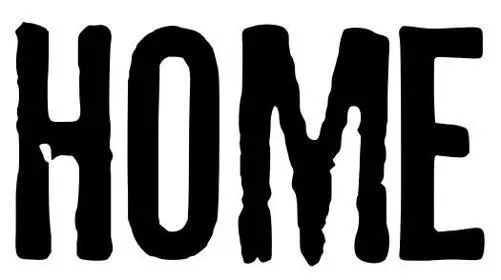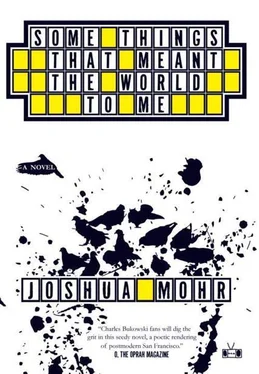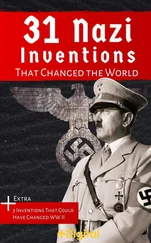I backtracked, then turned onto El Pasado, pulled the car over. I didn't look to the left-hand side of the street yet. Not ready to see 7876 El Pasado.
Little-Rhonda said, "Show time, baby" — giving a loud round of applause — "this is the moment we've been waiting for."
I smiled at him. I wanted to say something to let him know I appreciated him being with me. I remembered how comforting it felt when old lady Rhonda had said these simple words so I repeated them now: "My little Crash Man."
"What?"
"Forget it."
I was finally ready to eye the street, to see my stretching house. I looked over at it. To that lair of haunting agony. I looked over to my house, to where my house should be. I looked over to where the house was supposed to be. But it wasn't there. 7876 El Pasado wasn't there.
What I saw instead of 7876 El Pasado was one of Home Depot's massive orange walls.
"Where is it?" little-Rhonda said.
I didn't answer him. Lost in all that orange. Thinking about a gigantic bag of pruno.
"Where is it?" he said again.
"It's gone."
"Gone?"
"Everything's gone," I said, looking up the street. There used to be ten other houses on El Pasado, too, but they'd all been leveled, all demolished, as if they'd never existed.
The last thing I did was look to the corner, to where I used to catch the bus to school, but now it was a corral for Home Depot's shopping carts.

Right eye. It was a different day or month or year, but we were still talking about Letch. About the house. About the house I hated, and I kept saying to Angel-Hair that someone should burn it down. He asked me why I blamed the house. He said, Didn't bad things happen outside of the house. No, I said. Only in the house, I said. Angel-Hair had rolled the sleeves on his shirt up to his elbows. His wrists, so weak, so brittle. He could probably put a watch on too tight and fracture the bone. Left eye. Sometimes good things happened outside the house, I said. Like what, he said. The amnesty bench, I said. The hospital's air conditioning didn't work, and it was summer. Every room smelled like onions. An amnesty bench was where I could say anything to Letch and he wouldn't hit me, I said. I had one minute to say anything I wanted and there wouldn't be any consequences. Why would he do that, Angel-Hair asked. His father had done it to him. In Detroit. His father was a prison guard and told Letch, Even the inmates need to vent. With his sleeves rolled up to the elbows, I couldn't believe how skinny Angel-Hair's wrists were. If he clapped, the bones would splinter. If he sneezed really hard in his hand, he'd lose a few fingers. Right eye. Tell me more, he said. We didn't have a bench in our backyard. Letch took me to the grocery store. There was a wooden bench out front. An awning to protect people from the Arizona sun, but the awning had been tattered, destroyed. I sat down and the bench burned the backs of my thighs. Don't be a faggot, Letch said. What did you say to him, Angel-Hair asked. You've got sixty seconds, Letch said and looked at his watch. Go, he said. We sat next to each other. Letch was all sweaty. Must have been a hundred-fifteen degrees that day. He smoked, too, big pulls on his hand-rolled cigarettes. His body twisted to the side to look me in the eyes. Talk, Rhonda, he said. No second chances, he said. Angel-Hair's shirt was light blue. He sat with his hands clasped behind the back of his head and sweat had tie-dyed the armpits in circular stains. I don't know what to say, I told Letch. Hurry up, he said. Just tell me what you think of me, he said. I couldn't find any words. It was too hot and he was staring at me and I didn't believe there would be no consequences. Left eye. I asked Letch, What did you say to your dad. I told him I thought he was a bastard, Letch said. I think you're a bastard, I said. Good, he said. Angel-Hair brought his hands out from behind his head and folded them in his lap. He asked, What did Letch do. Letch asked, What else. I just sat there. Letch said, Anything you'd like to get off your chest. Letch said, Now's the time, Rhonda. He said, Put your balls into it. I couldn't say anything. I didn't want to say anything too awful because I'd be seeing him later that night. And the next. And the next. Then Letch checked his watch and said, Time's up. He said, You sure fucked that up. He said, There's always next year. Right eye. We walked back to the car and went to Burger King. Consolation prize, he said. The other kids were always talking about Angel-Hair's horrendous limp, but I loved his wrists. If he even tried to clip his fingernails, the vibrations would buckle the bones in his hands. I imagined him with a fingernail file, working carefully, slowly, trying not to hurt himself. Just trying to file them all down without an amputation. And then an entire year went by and Letch took me back to the amnesty bench. Not to the day, but the same month. August. August meant that the Arizona summer was in its agonizing climax. The grocery store had fixed the awning. New Shiny. Stripes, red and yellow The bench didn't hurt the backs of my thighs as I sat down. You remember how this works, Letch said. I think you're a bastard, I said. He slapped my cheek. Not too hard. One of his warning shots. Just a little pop to let me know I was close to pissing him off. We haven't started yet, he said. He checked his watch. Go, he said. Did the bench make you feel better, Angel-Hair asked. No, I said, but at least we were in public. He couldn't really hurt me in public. Left eye. I could imagine Angel-Hair flipping a coin and as it landed in his palm, his hand would fall off from his thin wrist, crumbling. I think you're a bastard, I said. You already said that, he said. Forty-five seconds left, he said. There were lots of people going into the store. Lots of people pushing piled-high shopping carts back to their cars. I wish I never met you, I said. I wish my mom never met you, I said. He laughed. I waited for him to say something nasty but all he said was, Thirty seconds. If I had a thumb war with Angel-Hair, if I pinned his thumb, if I mashed his thumb down as hard as I could, he'd probably start crying. Tell me more, he said. What else, Letch said. I hate you, I said. Good, he said. I hate you and I hate it when you touch me, you shouldn't touch me, I said. What else, he said. Angel-Hair asked, Weren't you scared. He locked his hands behind his head again. The curlicue stains standing out from his armpits. Why, I said. Why would I be scared, I said. Fifteen seconds, Letch said. Why would you believe him, AngelHair asked. Why would you believe that he wouldn't hurt you for the things you said on the amnesty bench, he said. Who said I believed him, I said. Right eye. I hope you die, I said to Letch. Ten seconds, he said. It felt like the last ten seconds in the whole world. I hope you die I hope you die I hope you die I hope you die I hope you die I hope you die I hope you die I hope, I said. Time's up, he said. Do you feel better, he said. Left eye. Letch took me out for a cheeseburger on our way home. He said, Good job. He said, You can get one with bacon.

I sat in the Neon, staring at the enormous orange wall, which was right where my house was supposed to be.
Me, Rhonda, confused and pissed off.
"Problem solved," little-Rhonda said.
"What's that supposed to mean?"
"You don't have to burn it down."
"You ever seen Poltergeist?"
"Have you?" he said.
Читать дальше













